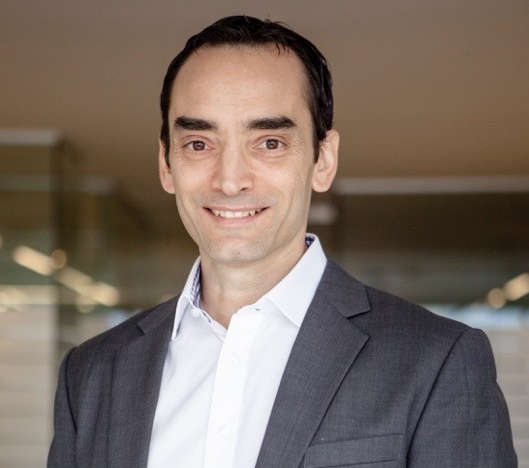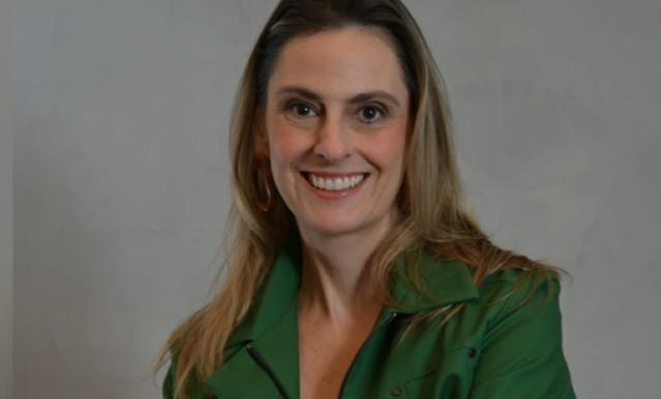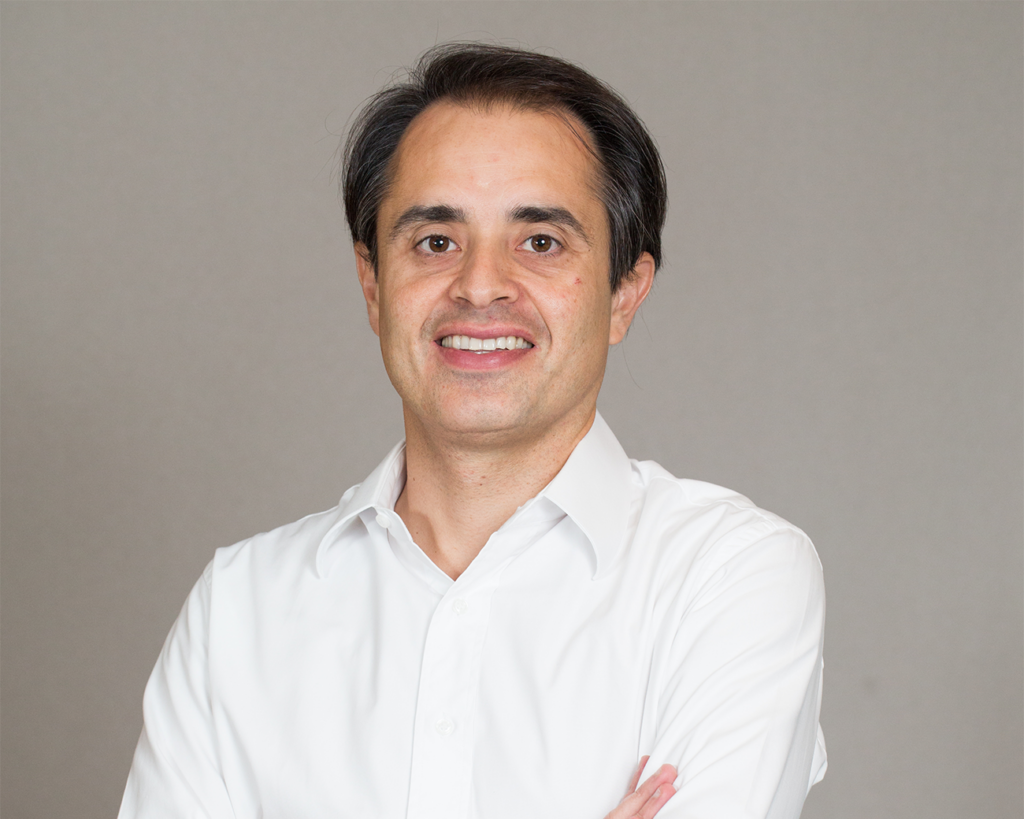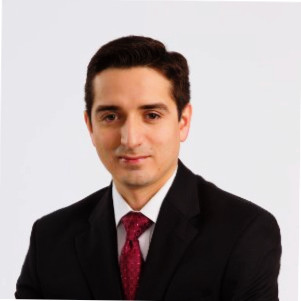Member Profiles
Hernan Kazah, Co-Founder & Managing Partner, Kaszek Ventures
22 September 2016

LAVCA: KaszeK Ventures has origins in MercadoLibre, one of the big tech success stories in Latin America. How did you shift from entrepreneur to investor?
Kazah: The founding team of KaszeK was part of the founding team of MercadoLibre. During our more than 10 years as entrepreneurs, we witnessed firsthand the tremendous opportunity that technology had in the region and, also, the lack of support for entrepreneurs. Over those years at MercadoLibre we were often asked by entrepreneurs for capital and support, which at the time was hard to provide. Therefore, we thought that getting into venture capital was something quite obvious and it gave us a way to work with entrepreneurs, be involved in the company creation process and leverage on our experience in a terrific industry.
The technology sector has tremendous opportunity anywhere in the world, but I think that particularly in Latin America where, compared to other regions like the US or even China, there’s still a more open field. In the tech sector, Latin America is moving in the right direction, but it still has a long way to go.
LAVCA: How many funds have you raised and what has the fundraising experience been?
Kazah: The first fund was raised in Q3 of 2011. We raised nearly US$95m and have invested almost all of it across a total of 24 companies. We are still engaged with a number of those companies, but have sold three so far, had partial exits in two and wrote off an additional three.
Our second fund was raised in 2014 and ended up being slightly larger, at US$135m, which we are still deploying. Eventually, we will raise a third fund, maybe within the next year.
Having gone through the fundraising process twice, we have experienced minimal issues and a lot of interest. We launched the first fund in 2011 with a target of US$50m as we thought that that was a good starting point for a new fund, but ultimately were oversubscribed and ended up closing at US$95m. For the second fund, we started with a target of around US$100m. One of the investors asked us to define a hard cap, so we set that at US$135m and again, ended up being oversubscribed.
LAVCA: What is your investment focus and preferred stage?
Kazah: Our focus is to invest in Series A companies that usually have some initial traction and previous capital. At that stage, which I would identify as our core investment preference, we would typically be the first institutional investor in the company. We also seek out some Seed investments if we know the founder, company, or space quite well.
We may occasionally do a Series B too, if there is a founding team that we like but that for some reason we passed at the Series A. Typically because either at the time of the Series A our fund was not ready (this particularly happened as we were launching our first fund) or because when we met the entrepreneur we like what he or she is doing but there are some specific concerns that we want more clarity on. In those cases, we pass in the earlier stage and when the entrepreneur comes back, having resolved the previously identified issue, we are happy to pay a higher price for a more consolidated company.
LAVCA: What is your geographic focus?
Kazah: We look for companies throughout Latin America, so we are agnostic about the country as long as it is in the region. Importantly, we also look for companies that are focused on Latin America, at least initially. We definitely encourage global growth, but we feel that we have an advantage in understanding what’s going on locally – how to grow a business in the region, how to expand it, where are the challenges, how to network a company within the region. We feel that other investors have that strength globally, so we typically stick with companies which have a reason to be local where there’s an edge to being local. We like those opportunities that are solving a local friction point.
In a way, that comes from our experience creating and running MercadoLibre. There were a lot of local dynamics in play including solving local payments, getting in touch with local sellers, training local sellers, and understanding local commerce. You had to resolve fraud at a local level, and address shipping and customer concerns which were also local. Having a global presence might have been helpful on some level, but if you were eBay, for instance, at the time and wanted to do something in Brazil you could only make that work with a strong local team – working out of San Jose would have been more of a challenge.
If you want to do Facebook from Latin America to Latin Americans, you probably have a disadvantage vis-à-vis global players, even if your local customization makes sense, as a global network by definition brings more value as it helps users connect with Brazilian friends, but also with Mexican friends, American friends, European friends, and Chinese friends. The global model makes more sense from the get-go and, therefore, this is the exact type of business we would hesitate to invest in unless we feel that the local team has a global edge beyond the understanding of the Latin American market.
We focus a lot on founding teams…If we find an entrepreneur that we really like, committed to what he/she is doing, and with lots of energy and a great vision, we immediately find ourselves enthusiastic about an industry that maybe we hadn’t considered before.
LAVCA: What do you look for in a startup?
Kazah: We focus a lot on founding teams. There are venture capitalists that look at the world and what’s going on in technology and they try to forecast how things will look in five, or ten years. Then, based on that, they create their portfolios. In our case, we obviously do a little bit of that too, but more importantly we look at entrepreneurs. If we find an entrepreneur that we really like, committed to what he/she is doing, and with lots of energy and a great vision, we immediately find ourselves enthusiastic about an industry that maybe we hadn’t considered before. On the other hand if we like a particular business or sector but meet 20 teams and none of them really convince us, we have no problem passing. We are a founder-focused VC firm.
We are a founder-focused VC firm.
LAVCA: Given your history with MercadoLibre, do you have a sector focus on ecommerce?
Kazah: No, we have made investments in ecommerce but we have no particular focus on it. We are generalists in the venture space. Given our past with MercadoLibre, we like a lot marketplaces, meaning technology platforms that help demand and supply meet, in several forms and sectors, in a new and much more efficient ways. But in general, we look for anything where technology can make things better and with great scalability to disrupt an industry. We look for technology that will make a difference or a change.
LAVCA: You just invested with monashees+ in DogHero, a platform that connects dog owners to people who can take care of their dog while they are traveling. Would you consider that a marketplace?
Kazah: Yes, we invested in DogHero’s seed round and are investing again now in their Series A with Monashees. DogHero is certainly a marketplace as it connects two ends of a market in a very efficient way: on the one hand, dog owners that want to leave their pets under good care for a few days and, on the other hand, people who love dogs and want to take good care of them and make an extra income by doing so.
We’ve also invested a lot in fintech. We think that the financial sector has huge potential in the region, and is one where technology can really make a change. With technology you can either improve efficiencies or incorporate to the market a subset of people that might have previously been ignored.
We also like some B2B plays, companies adding value to other companies by producing great pieces of software. We do a little bit of everything. We even have Dr. Consulta in our portfolio, which is a terrific network of physical clinics that is filling a huge gap in Brazil’s healthcare system by offering top quality healthcare at an affordable price. We are very open in terms of what areas we cover, but in all those cases we have to see scalability and more importantly, as I said, we have to see outstanding founders.
LAVCA: Is there anything you want to say about Konfio? Is this your first investment in Mexico?
Kazah: Yes, Konfio is our first investment in Mexico. We like the company’s opportunity and think David Arana is an A+ entrepreneur with a very strong team. Fintech makes total sense in Latin America, and I think particularly in Mexico. There is a largely untapped market related to finance and banking in Latin America, which is even more prevalent in Mexico. If you look for penetration of credit cards, credit, etc. Mexico is behind Brazil, Argentina and Colombia for instance. Konfio would offer lots of small companies and small merchants a huge opportunity by providing simpler and more straightforward access to financing versus what is available today, which is expensive, cumbersome, and almost impossible to get.
We usually tell our entrepreneurs to dream of creating a company that eventually can be worth a billion dollars, but not to reach a billion users. There aren’t a billion users in the region.
LAVCA: You talked about looking at opportunities that have a local edge. There is an assumption among some Silicon Valley VCs that you need to be thinking global from day one, and if you’re not going after a billion users you’re not a startup. Do LatAm startups need to reach a billion users to win?
Kazah: No. We usually tell our entrepreneurs to dream of creating a company that eventually can be worth a billion dollars, but not to reach a billion users. There aren’t a billion users in the region. The fact that we start focusing just on Latin America sets us aside from that group.
Obviously, we’re trying to invest in big ideas, but I think that you can find big ideas within Latin America. There are some people/firms that are great at finding global ideas which they can fund and network, but our strength is to help local companies deploy their business and connect with the appropriate relationships within the region. Developing globally first is not our core because we don’t have enough visibility to see if someone else is doing the same thing out of India, Russia, the U.S., or China and other global VCs can do that better.
LAVCA: What are your relationships with co-investors? Just looking at the recent deals you’ve invested with a rockstar list of firms.
Kazah: We’re very open to co-investing, we look forward to working with other firms, if they come to the equation and can add value from a different angle from ours. We do try to maintain a reasonable percentage of ownership because we have to be respectful of our time, which is limited, so we cannot go and invest one percent in hundreds of companies. We’d rather invest 15, 20, 25 or 30 percent in a few companies.
Having said that, when co-investing, our strength is to bring the operational experience from our MercadoLibre story, while other funds can bring more of a global view. Another model that works when co-investing is targeting different maturity levels/stages. Maybe we lead the Series A and then we co-lead with someone on the Series B, but then that other co-investor leads the Series C.
We’re happy to bring on people with different perspectives, with different approaches to try to make those companies more successful. That’s our main focus, to help entrepreneurs and companies reach potential, or at least to add into that equation as much as we can.
LAVCA: Have you seen a change in entrepreneurs expectations about valuations and terms since you started investing?
Kazah: No, I think valuations have come and gone, but it’s always within a reasonable range. We haven’t seen a tremendous inflation in valuation and we haven’t seen a tremendous deflation in valuations either.
LAVCA: Even despite the negative headlines Brazil has suffered for the past year?
Kazah: It fluctuates, but always remains reasonable. The height of valuations would have been in 2011 when Brazil was hotter and everyone thought that it was going to be the main engine of the world. Then last year when people thought that Brazil was becoming a devastated land, prices were on the lower end.
Relatively speaking, Brazil is a very large economy that is progressing well. When analyzed over the last 100 years, over the last 50 years, over the last 20 years, it has been going in just one direction: up and to the right. Then, when you do a closer snapshot, obviously there are several ups and downs.. Long way to go, but certainly an economy evolving in the right direction. The same things happen with all of the countries in Latin America. They’re evolving and making improvements in GDP per capital and in most other macro metrics, but have some ups and downs in their evolution. in a nutshell, we’re optimistic on the region mid-long term, but recognize that there will be some ups and downs.
LAVCA: The chart cannot always go up indefinitely.
There is a long way to go, as I said. Millions of people that will hopefully improve their standard of living in the next few decades. You have to look at the fundamentals and I think that the fundamentals of the region are quite solid. Particularly for tech investing where you have not only those positive macro trends, but also a tremendous secular trend with the adoption and growth of the internet that tends to completely outweigh this short-term volatility.
LAVCA: You started KaszeK looking at the tremendous opportunity in the region and lack of support. Is that still the case? What has changed since your MercadoLibre days?
Kazah: I think that the ecosystem has progressed. When we started MercadoLibre in 1999 there was no ecosystem whatsoever. You couldn’t go to anyone for help. I think now the ecosystem is much more developed, but it’s still in a very early stage. Today you have local accelerators, local early stage funds, and some local investors. It is a small network of people that can help companies get off the ground. And you also have more global VC’s looking at the region.
Back in the late 90s early 2000, there were some banks that saw what VCs were doing in Silicon Valley, and wanted to replicate that model. That ended up not working because most of them couldn’t add value and didn’t have the patience to build these businesses for the long run, which is what a VC does: you commit to a company, work hand in hand with the entrepreneur, and remain very patient because it’s a long-term game. Today you do have that.
However, it’s an unbalanced market still. It’s not a consolidated ecosystem at all, but I think it’s moving in the right direction. You will see in the future more global funds looking at Latin America, you will see some other local funds emerging, hopefully you will see some other companies like MercadoLibre being successful, and feeding again the ecosystem by either producing people that can do things in the industry or producing funds that can reinvest in other entrepreneurs. Those companies might even become an exit for some of those younger companies, spurring yet more opportunity.
Interestingly, I remember when we were pitching MercadoLibre to investors 10-12 years ago, the first few slides were about Latin America as a region because we had to tell people where Latin America was, what Latin America was, why we’re doing something there. Today you don’t need that. Everyone has Latin America information, most people understand what’s going on there and they have a better grasp on the industry.
[T]he number one thing is to eliminate unnecessary frictions (in Argentina) because the entrepreneurs already have a lot of challenges. A lot of things need to happen. It’s just a very first step of a long marathon, but it (Ley del Emprendedor) is very encouraging and hopefully this will continue moving in the right direction.
LAVCA: Do you see the Ley del Emprendedor as a step in the right direction (at least in the Argentina context)? Can you comment on the momentum Argentina is experiencing?
Kazah: I think it’s fantastic the change that we’ve seen in Argentina recently. Argentina was almost a toxic asset for some investors for a few years, and now it’s becoming an interesting market again so we hope to see that evolving positively. I think that will help the tech industry, the overall region and obviously the country too.
This specific initiative of putting some attention on entrepreneurs and that new jobs need to be created by companies that do not yet exist is something that governments are realizing. It is good to see the Argentine government putting this into action with the intention of helping entrepreneurs. It is very discouraging to see all of the pain points that entrepreneurs go through tax-wise, labor-wise, structure-wise to start the company. If you could remove those burdens, entrepreneurs in general will take off. On top of that, if governments can help with some funds or some promotions, even better. I think the number one thing is to eliminate unnecessary frictions because the entrepreneurs already have a lot of challenges. A lot of things need to happen. It’s just a very first step of a long marathon, but it is very encouraging and hopefully this will continue moving in the right direction.
LAVCA: Why did you join LAVCA and continue to support as a board member and Chairman of our VC Council?
Kazah: It’s very related to the ecosystem. This is a very nascent community and it needs an organization like LAVCA to connect the people, get people together, share knowledge, make everyone more aware of the sector and its positive influence on the economy, and also communicate with decision makers outside the immediate sector that may have an impact on it. It’s important to have some coordination within a sector to streamline any needs that can be centralized or establish best practices that can be shared. LAVCA can play a role in accelerating the development of the industry.
You may be interested in...
-

Luciana Antonini Ribeiro, eB Capital
Executive: Luciana Antonini Ribeiro, Co-Founder and CIO Member Name: eB Capital Year...
-

Cristiano Gioia Lauretti, Kinea Private Equity
Member: Kinea Executive: Cristiano Gioia Lauretti, Head of Private Equity HQ: São...
-

Maria Pia Iannariello, MGM Innova Capital
LAVCA recently spoke with Maria Pia Iannariello, Co-Founder & COO of MGM Innova Capital,...
-

Rafael Ramirez, Portfolio Manager, Alaska Permanent Fund Corporation
LAVCA recently spoke with Rafael Ramirez, Portfolio Manager– Private Equity &...